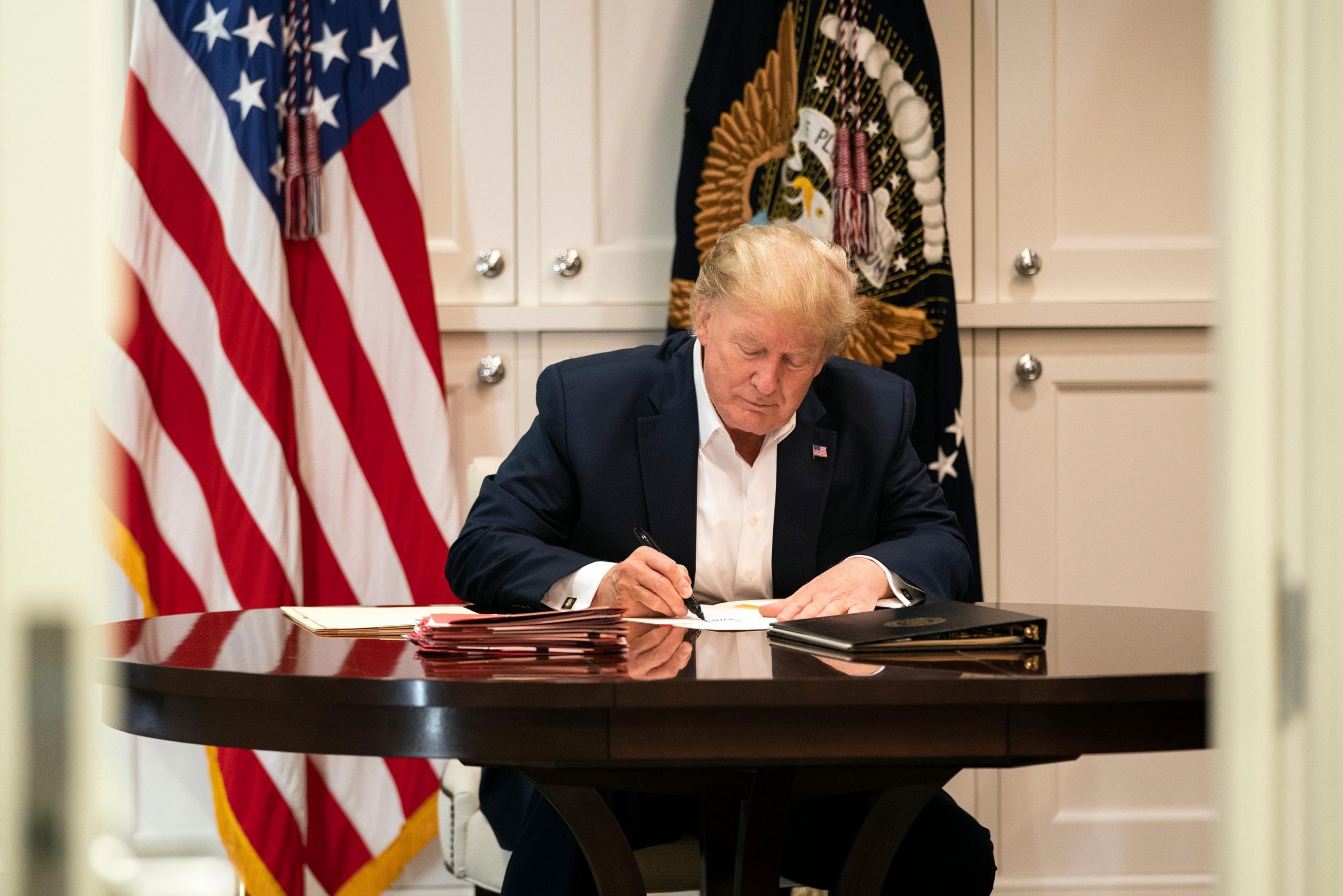
I’ve had emails asking me what I think about President Trump’s illness and the course of treatment that he’s under. To be honest, this wasn’t a subject that I really felt like writing about – every time I write anything about Trump here, I regret it – but the reports have been so increasingly odd that I think that a discussion is in order.
I have to start off by admitting that the timeline of the president’s coronavirus infection is hopelessly confused. It’s very hard to say how long he’s been infected. But I also have to say that even if we had that figured out, it still might not be much help. Different people can have radically different courses of disease in this pandemic – a fact that’s been made abundantly clear over the last several months. But since the president has several risk factors working against him (age, gender, and BMI), one has to be ready for anything.
So what can we infer from his course of treatment so far? He got Regeneron’s monocolonal antibody cocktail very early, it seems, and at the highest clinical dose (8 grams). There has been no formal publication of Regeneron’s results, not even an unreviewed preprint, and I haven’t blogged about their recent press release (which is all we have). Like all press releases, it tells us some things and leaves some out. The company states that the antibody treatment reduced viral load and alleviates some coronavirus symptoms, particularly in patients that had not mounted a good antibody response of their own at the time of treatment. That all makes sense. But we don’t know if it actually helps with mortality, chances of being hospitalized (or going to an ICU once there), total time hospitalized, and so on. We also have only the earliest safety readouts (which so far don’t look problematic).
I would assume that Regeneron knows more than this, in unpublished form, and that this knowledge was part of their interaction with the president’s physicians when they provided the monoclonals. If I had to bet, I would bet that this would be an appropriate therapy. But betting the president’s health is another thing entirely, and I’m glad that I didn’t have to make that call. And this leaves Regeneron’s executives with even more reason than others to hope that the president recovers well, obviously.
Overall, though, it would seem that if you’re going to give monoclonal antibodies, that they would be best given early in the course of the disease, when therapy is still in antiviral mode. The addition of a five-day course of remdesivir to the treatment regimen fits that as well: both of these are designed to lower the amount of virus present and (in theory) keep the disease from progressing to a more severe stage.
That severe stage shows up as an overactive immune response leading to the well-known “cytokine storm”, and potentially big trouble. It really looks like the best therapy we have for that at the moment is dexamethasone. So I found it interesting – and not in a good way – that the president’s medical team had actually put him on dexamethasone, because its mode of action is to damp down the inflammation response. And if a person is still in the early stages of infection, that’s the opposite of what you want to do. There’s a real gear-shift in the treatment of coronavirus patients, when you have to switch from treating the viral infection to treating the immune consequences of the viral infection, and what’s appropriate for one phase of treatment is definitely not appropriate for the other.
So since the Walter Reed physicians are, in fact, very competent, the only conclusion I can draw from this is that the president’s infection is further along than we had thought. They may well be seeing signs of inappropriate over-response to the coronavirus and are trying to knock that down before it gets more serious. Another possibility, I suppose, is a similar over-reaction to pneumonia (which is the only reason I have ever had a short course of dexamethasone myself). OK, then. . .but how on Earth do we square any of that with the physician’s comment yesterday that Trump was doing so well that he might be discharged today? Discharging a 74-year-old man with coronavirus in the middle of remdesivir and dexamethasone therapy makes no sense at all.
But neither did Trump’s motorcade trip around Walter Reed yesterday. The news is full of people talking about what a bad idea that was, and I would especially single out Dr. James Phillips, whose views I agree with completely. The New York Times reports that the president wanted to be discharged yesterday, in fact, and that the limo ride was some sort of compromise. You have to imagine that his doctors are being put in some nearly impossible situations, but there are a lot of things about the president’s illness that simply are not adding up. It’s obvious from the oh-yeah-in-retrospect statements about his oxygen levels dropping on Friday and Saturday that we are not hearing anywhere close to the whole story about his illness. And what we are hearing makes very little sense.
I do not expect things to get any more sensible today, if you’re wondering.
